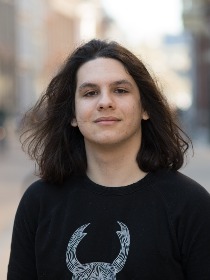First-year syndrome: A stepping stone of self-sabotage

In the last year of high school, university study life seemed like paradise: no more biology, no more French, just hardcore physics. Gimme gimme.
The first year of uni started nicely, with some basic Special Relativity, some Calculus, a bit of lab work… but it just didn’t hit my physics-craving brain in the right spot. We were all hyped to study Quantum Physics, black holes, String Theory… really just to go against the gods.
Most of the courses started nicely, with the first few weeks being stuff you’d probably know from high school… only slight new takes on it from our professors. It was at that time of every block when I started to miss a lecture here and there or skip some tutorial questions. It might have been fine for a while, but in all that hype, I started to not realize me lacking behind: you never quite know when the new stuff is taught or what each lecture brings to the table compared to the book, until you can no longer solve a tutorial question from last week, which of course you just never bothered with.
So what happened? Is the uni’s program bad or maybe the pace was too slow? To be perfectly honest, at the time I didn’t realize just how many different backgrounds are for all of us: I fell asleep regularly on the 9 am starting Calculus lectures, but I was terrified when I had to use an oscilloscope in the labs. We are taught everything from the start, a clean slate, something very reassuring, but where I felt confident, I just saw it as “helping the rest catch up.”
This presumptuous view made me miss that now it was all put in a context: building physicists out of us. Everything was tied to a physical concept, the subjects were interconnected, and the lecturers wanted us to start thinking in a certain way about our studies. This is something you never quite get in high school, but here, it is the key.
After not scoring as high as I wanted to on some courses which I felt confident about, I started to lose my spirit: I was not doing what I wanted to (poor me, not doing Ph.D. work in my first year of uni) nor was I great at this early stage.
Through all that, there was one thing that saved me: I was trash at coding and we had a coding course. Everything was new. Everything was instantly applied and I just loved to do my everyday work. I became good at it and I got to even do some extra work which brought back my enjoyment. It was all thanks to some professors who guided me through it and even tailored my assignments to keep my hype surviving and even growing.
However, yet another kick in the guts was courses such as Nanophysics. For some of my best friends, those changed their whole path in life and showed them a glimpse of what they actually want to do. For me, this mandatory broadening was a painful uninteresting and tedious process of “just pass it and you’ll never see it again, mr. theoretician.” Was this statement right? Well, I won’t ever be a nanophysicist… but also, I am studying sensors and their limitations before actually doing my real work. So these courses did make me get a broader picture of the world where we perform our experiments and the work our colleagues need to put in to make them happen, through all the limitations which we must keep count of.
While not a first-year thing, perhaps the greatest piece of education I ever received here was a question I kept being asked during my thesis: “But what does it mean?” I was hoping to do all the maths perfectly and explain those mechanisms, but the best part of physics comes when you really look right at the physics, not just at the (beautiful) maths behind it. Always think of what it represents and you will then see a whole new dimension around the math one, which will let you quantum leap through it to get your results, or even set new goals to reach: this is how physics is discovered.
If there is one thing I wish I would have known from the start, it is this one. And with it in mind, any course, any tutorial question, any “never see again” course… they all suddenly become “what you should and want to do,” not just a stepping stone. Because at the end of the day, it doesn’t just skip some redundant basics, it skips your new view of the world… and Quantum Physics… and black holes… and String Theo…
If you have any questions, please contact me through my personal page.
About the author

Hi! My name is Vlad Ispas. I grew up in a small Romanian town called Beiuș. We like football there so I played as a goalkeeper for six years: love this beautiful sport. This is also where I found my passion firstly for maths and then for physics. This transition really came to define me in the years since I left it for Groningen, but I am still looking to spend more time here in the search of that better definition through studies. Right now I’m balancing my act between cosmology and quantum physics, so I’m more often than not smiling on three hours of sleep and four coffees: I love it.

